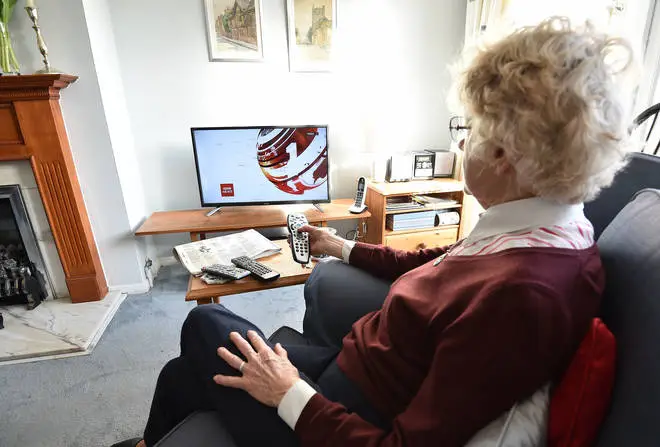
Nick Ferrari 7am - 10am
1 August 2020, 00:13

The universal free TV licence for over-75s has come to an end, in what has been called a "sad day for our older population".
The BBC will now means-test the entitlement, having previously delayed its introduction because of the pandemic.
Over-75s must receive pension credit to receive the free TV licence, which costs £157.50.
The BBC agreed to take on responsibility for funding the scheme as part of the charter agreement hammered out with the Government in 2015.
It has said it cannot afford to continue the universal entitlement, which would hit "programmes and services".
TV Licensing will write to all over-75 licence holders from August, outlining what action to take.
The BBC's decision to press ahead with charging most over-75s the full licence fee is deeply frustrating, as I said in parliament today. The Corporation's settlement - to which they agreed - is generous and sufficient. pic.twitter.com/CeAT5zOJIo
— Matt Warman MP (@mattwarman) July 9, 2020
Caroline Abrahams, charity director of Age UK, said: "This is a sad day for our older population, many of whom are feeling badly let down by both the Government and the BBC over the demise of these free licences."
She said that "more than half a million of the poorest pensioners will still have to pay for a licence, cut spending on other essentials like food or heating, give up TV altogether or keep watching without a licence, in breach of the law" because they still do not qualify for pension credit.
"It is deplorable that any older person should have to make such a horrible choice.
Some over-75s have an income which "is just a few pounds or even pence too high to qualify them for pension credit, who will find another big bill too much to manage".
She said: "Many months ago we said that we thought the BBC's plan would turn out to be a 'slow motion car crash' and nothing that has happened since leads us to change our minds.
"As the disastrous impact of the BBC's plan on some of our 'oldest old' becomes apparent over the next few weeks, we hope this will bring the Corporation and the Government back to the table, to find another way to keep TV free for the oldest in our society."
Age UK is "calling on everyone aged over 75 to see without delay if they are eligible for Pension Credit, if they haven't already done so."
A BBC spokeswoman said "it was the Government that ended funding for over-75s TV licences" and that the "BBC has made the fairest decision possible to support the poorest, oldest pensioners".
She added: "Critically, it isn't the BBC making judgments about poverty - the Government sets and controls pension credit.
"The decision to start the new scheme in August has not been easy but delaying the introduction has cost the BBC over £70 million and we cannot afford to delay any further.
"Continuing with the Government scheme would have cost £745 million a year and rising" and would have meant the closures of BBC Two, BBC Four, the BBC News Channel, the BBC Scotland channel, Radio 5 Live, and a number of local radio stations
"These closures would profoundly damage the BBC for everyone, especially older people who use the BBC the most."
She said: "Our focus is now on making the transition as easy as possible for all older people. Over 75s households will be given plenty of time to set up their licence and can do so safely without leaving home. For those who currently receive a free TV licence but have to pay from August 1, we're introducing a new plan so they can pay safely in smaller, more flexible instalments."
A Department for Digital, Culture, Media & Sport spokesperson said: "We are bitterly disappointed by the BBC's decision not to extend the over-75 licence fee concession beyond August.
"The BBC remains responsible for the concession and for setting out what those affected will now need to do. It must now look urgently at how it can use its substantial licence fee income to deliver for audiences of all ages, including by making efficiencies."
The DCMS says the Government agreed a deal with the BBC in 2015, which the director-general said provided "financial stability".